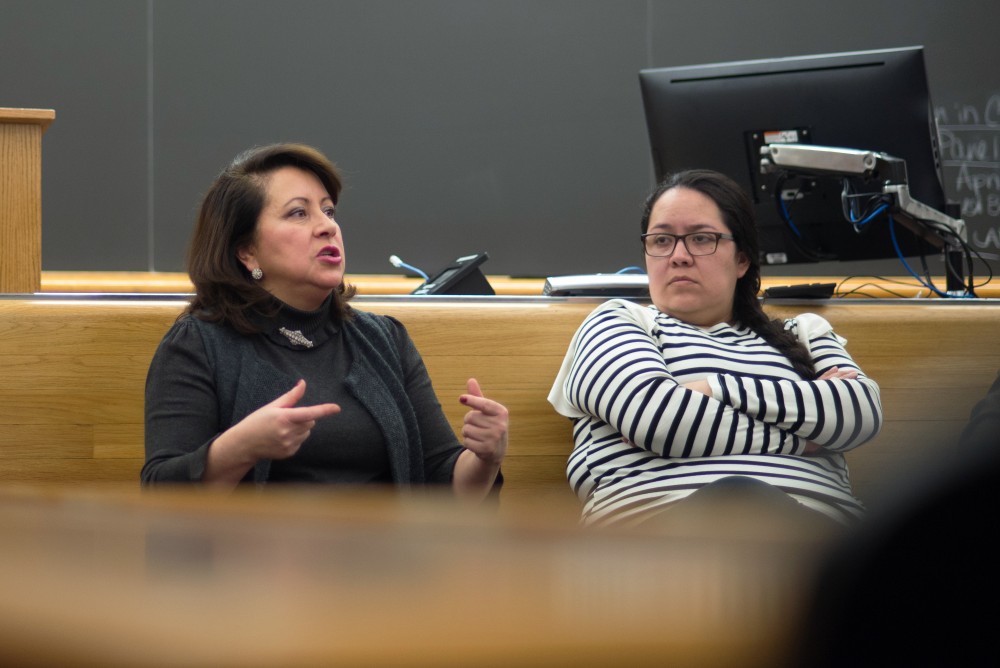As the Trump administration continues its hardline stance on immigration, undocumented immigrants across the country fear the possibility of deportation.
A panel at the University of Minnesota Friday afternoon brainstormed ways to make the state more welcoming to undocumented immigrants.
The panel, organized by the University’s Voices for Immigration Student Association, brought activists and legislators from across the Midwest to the University’s law school. About 20 students and faculty attended the hour-long event.
The four panelists discussed ways Minnesota can counter the federal government’s more restrictive view on immigration.
Andy Kang, one of the panelists, is a Chicago-based activist who lobbied for the Trust Act, an Illinois bill restricting the cooperation of local police departments with federal immigration authorities, also known as ICE.
At the event, Kang expressed his hopes for the Trust Act to show that progressive immigration laws can be implemented on the state level.
“My hope is that people think it’s doable,” he said. “I’ve lost count when we first started on this road how many people told us that this was impossible.”
Despite a lack of confidence in the bill, the Trust Act passed through Illinois’ House and Senate and was signed into law by Republican Governor Bruce Rauner last August.
Minnesota state Sen. Patricia Torres Ray, DFL-Minneapolis, who also spoke on the panel, is currently pushing for Senate File 1110, which, like the Trust Act, would make Minnesota more of a sanctuary state.
“What Illinois is doing is… incredibly important and it sets an example for the rest of the state,” she said. “It’s essential that we have good communication and trust between law enforcement and the community.”

According to a study released in 2013 by the University of Illinois at Chicago, 70 percent of undocumented immigrants across the country report being “less likely to contact law enforcement authorities if they were victims of a crime.”
In addition to limiting the connection between local law enforcement and ICE, Torres Ray’s bill would restrict police departments in Minnesota from detaining people solely based on immigration status. She hopes the change will make undocumented immigrants more comfortable to report crimes.
Linus Chan, a professor at the University’s law school who helped organize the panel, said the Trust Act and Torres Ray’s bill exemplify the ability for state governments to counteract the federal government’s tougher stance on immigration.
“Many of the issues that we think of are national are actually, in many ways, local,” Chan said. “The big battleground — and I think it’s one that’s coming up more and more — is what’s going to happen in states and in cities and counties.”
Timothy Sanders, a University law student who also helped organize the panel, said that universities can play a large role in advocating for immigrant rights.
He said this became clear as universities led the opposition to Trump’s travel ban.
“With the travel ban, there were a lot of states filing lawsuits,” he said. “Universities were part of the parties in those lawsuits arguing that, you know, these bans have wide-ranging consequences.”
While Torres Ray is doubtful her bill will get a hearing, she is dedicated to her belief that immigrants are an essential part of the U.S.
“We have the obligation to change the narrative and expose our reality, and our reality is that the overwhelming majority of immigrants in this country are law abiding citizens who are working, who are contributing to our economy,” she said.







